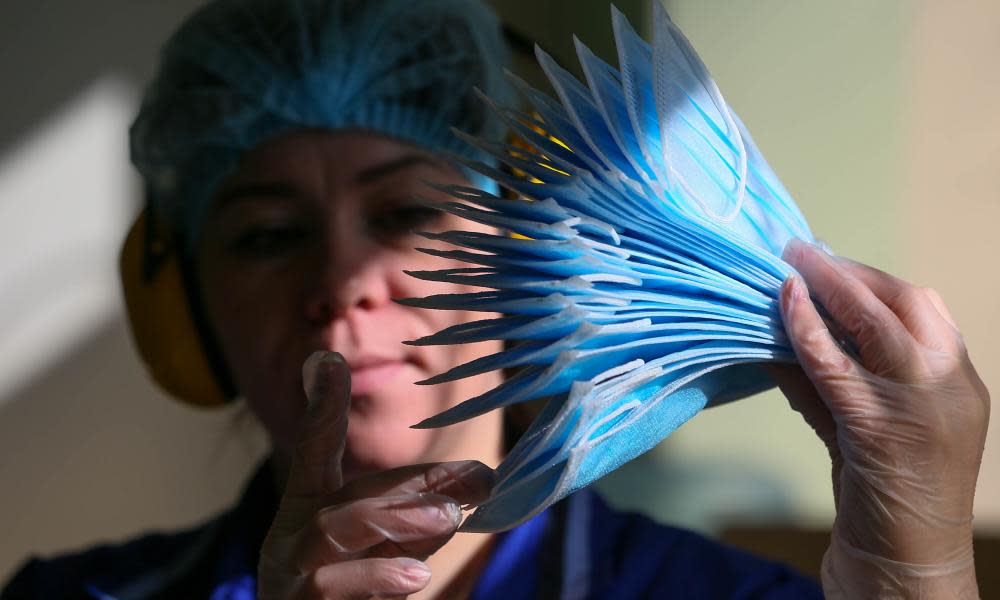Non-woven masks better to stop Covid-19, says Japanese supercomputer

Face masks made from non-woven fabric are more effective at blocking the spread of Covid-19 via airborne respiratory droplets than other types that are commonly available, according to modelling in Japan by the world’s fastest supercomputer.
Fugaku, which can perform more than 415 quadrillion computations a second, conducted simulations involving three types of mask, and found that non-woven masks were better than those made of cotton and polyester at blocking spray emitted when the wearer coughs, the Nikkei Asian Review said.
Non-woven masks refer to the disposable medical masks that are commonly worn in Japan during the flu season, and now during the coronavirus pandemic.
They are made from polypropylene, and are relatively cheap to make in large numbers. Woven masks, including those used in the Fugaku simulation, are typically made from fabrics such as cotton, and appeared in some countries after non-woven versions were temporarily in short supply.
They can be reused and generally offer more breathability but, according to the World Health Organization (WHO), should be washed in soap or detergent and water of at least 60C at least once a day.
The non-woven variety blocked nearly all droplets emitted in a cough, according to experts at Riken, a government-backed research institute in the western city of Kobe.
Cotton and polyester masks were slightly less effective, but were still able to block at least 80% of droplets.
Non-woven “surgical” masks were slightly less effective at blocking smaller droplets measuring 20 micrometres or less, with more than 10% escaping through gaps between the edge of the mask and the face, according to the computer model.
One micrometre is one millionth of a metre.
Polyester and cotton masks allowed up to 40% of the smaller droplets to escape.
Mask-wearing is widespread and largely accepted in Japan and other north-east Asian countries, but has caused controversy in the UK and the US, where some people object to being told to wear face coverings in public spaces.
Related: How to take the perfect breath: why learning to breathe properly could change your life
On Monday, the British prime minister, Boris Johnson, said pupils in England would no longer be advised against using face masks in secondary schools, as the country prepared to reopen classrooms.
Makoto Tsubokura, team leader at Riken’s centre for computational science, encouraged people to cover up despite the heatwave gripping large parts of Japan.
“What is most dangerous is not wearing a mask,” Tsubokura said, according to the Nikkei. “It’s important to wear a mask, even a less effective cloth one.”
Fugaku, which was named the world’s fastest supercomputer last month, has also run simulations on how respiratory droplets spread in partitioned office spaces and on packed trains when the carriage windows are open.
Although it will not be fully operational until next year, experts are hoping the 130bn yen ($1.2bn) supercomputer will help identify treatments for Covid-19 from about 2,000 existing drugs, including those that have yet to reach the clinical trial stage.


